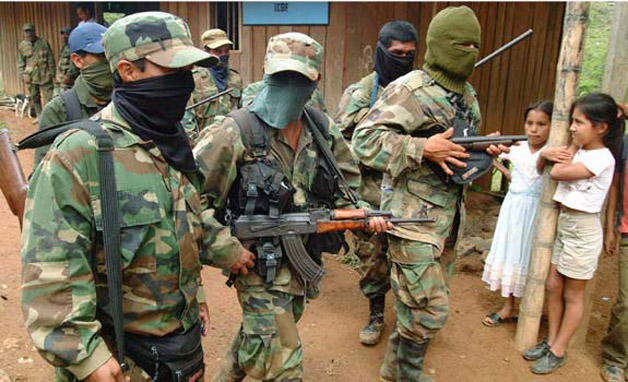
CJA filed Cabrera v. Jiménez Naranjo before the U.S. District Court for the Southern District of Florida in June 2010. The complaint accuses Carlos Mario Jiménez Naranjo (also known as Macaco or Javier Montañez) of command responsibility, complicity, and personal responsibility in the torture and extrajudicial killing of Alma Rosa Jaramillo and the extrajudicial killing of Eduardo Estrada. The charges – including crimes against humanity; war crimes; extrajudicial killing; torture; and cruel, inhuman or degrading treatment – are brought under the Alien Tort Statute (ATS) and the Torture Victim Protection Act (TVPA), which allow for civil suits in U.S. courts to remedy a limited set of human rights violations. The case was filed jointly by CJA and pro bono partner Wilson Sonsini Goodrich & Rosati. CJA investigated this case for over two years with the support of the Colombian Commission of Jurists (Comisión Colombiana de Juristas).
After the claim was filed, the U.S. Supreme Court and the Eleventh Circuit issued unfavorable rulings on ATS cases. In Kiobel v. Royal Dutch Petroleum, the Supreme Court ruled that because there is a presumption against the extraterritorial application of U.S. law, ATS claims could only proceed in federal courts if they “touch and concern” the United States. In Cardona v. Chiquita Brands Int’l and Baloco v. Drummond Company, Inc., the Eleventh Circuit dismissed ATS claims against defendant companies accused of working with Colombian paramilitaries on a narrow reading of Kiobel v. Royal Dutch Petroleum. In light of these new precedents, the Court dismissed our plaintiffs’ ATS claims in 2014 on the basis that Macaco’s conduct occurred overseas and therefore did not survive the Kiobel presumption against the extraterritorial application of the law.
Additionally, the Court dismissed the TVPA claims related to the murder of Alma Rosa Jaramillo on the grounds that the pleadings did not adequately allege that the murder had been committed under “the color of foreign law” – that is, attributable to the government of Colombia. The legal team continues to evaluate options for the Jaramillo family, including an appeal after a final judgment in the ongoing case is rendered. A future appeal has the potential to redefine the “color of law argument” and expose the AUC and Colombian paramilitaries for what they were: agents of the Colombian state. Despite these challenges, CJA continues to move forward with the TVPA claims related to the murder of Eduardo Estrada.
On July 19, 2019, Macaco, who had served 11 years of a 33-year sentence for drug trafficking, was released from U.S. federal prison and removed to Colombia. He was arrested immediately upon arrival in Bogotá. CJA’s civil case continues against Macaco, even while he is detained in Colombia.
On December 11, 2020, Plaintiffs filed a motion for summary judgment requesting that the Court hold Macaco liable for torture and extrajudicial killing given the undisputed material facts demonstrating his responsibility for these crimes. In the alternative, Plaintiffs requested that the Court enter a default judgment against Macaco in light of his failure to continue to actively defend the case following his removal to Colombia.
On September 27, 2021, a U.S. federal court granted Plaintiffs’ motion for summary judgment and held Macaco responsible for torture and extrajudicial killing carried out by BCB paramilitaries. Read the landmark decision here.

